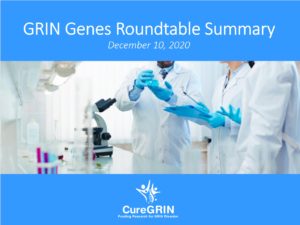Take Action NOW! Help Secure ICD-10 Codes for GRI Disorders!
Share This Post
ICD is short for “International Statistical Classification of Diseases and Related Health Problems.” ICD is a classification system that is used around the world by healthcare systems, government agencies, and researchers to track and report illnesses, disorders, and other health conditions. The U.S. and 150 other countries currently use the ICD-10 version.
These codes are needed to enable the medical records system to easily identify patients to improve communication among healthcare providers as well as identify clinical trials and research to understand each disorder. ICD-10 codes can help doctors and clinical teams quickly identify appropriate and inappropriate medications.
They can help researchers to specify each unique rare disorder and genetic cause.
These codes are now stored in the patient’s electronic medical records (EMRs), enabling a patient’s health information to be more easily shared between clinicians and healthcare settings. ICD-10 codes are used to track the epidemiology of disease including demographics, incidence, and treatment outcomes. Without ICD-10 codes, the lack of data makes it difficult to track our conditions effectively and hampers research efforts. Patients in the wider population are not being identified, and may not be receiving the full range of care.
Did you know that less than 20% of rare diseases have unique ICD codes?
GRI Disorders are among the greater than 80% of rare diseases that do not. CureGRIN applied ICD-10 codes for GRI Disorders in December 2022. Dr. Tim Benke presented the case for ICD-10 codes to be created for GRI Disorders at the
March 2023 ICD-10-CM Coordination and Maintenance (C&M) Virtual
Meeting on behalf of CureGRIN. Codes for GRI Disorders and other rare neurodevelopmental disorders were presented by Dr. David Berglund again at the March 2024 meeting. As you can see, this is something that CureGRIN has been working towards for a long time.
How can you help?
The U.S. Centers for Disease Control met last month to consider adding ICD-10 codes for GRIN, GRIA, and GRIK Disorders. ICD-10 code applications are considered by U.S. officials and adopted by the World Health Organization. There is now a public comment period through May 17, 2024.
The CDC highly values input from physicians and medical professional societies. We are asking our U.S. families to have their child’s doctor reach out to important medical professional societies and the CDC. Families can also share their feedback with the CDC as well. Please encourage your child’s physician to advocate for these codes!
Note: Why are we only asking U.S. families to help at this time? The CDC is a U.S.-based organization and some other countries (outside of the U.S.) are already using ICD-11. CureGRIN is currently in the process of applying for ICD-11 codes as well.
If you are located in the U.S., here are your next steps:
- Contact your child’s doctor (via email, phone call, or health portal) and ask them to:
- Step 1: sign and send the template letter to the CDC email provided (nchsicd10CM@cdc.gov)
- Step 2: Fill out the American Academy of Pediatrics (AAP) form
- The AAP has an online ICD-10 help form. If the doctor is not an AAP member, that’s no problem! They can still submit the feedback form suggesting new ICD-10 codes according to their website. For the question regarding “Is this a payer-related issue?”, please select no. Please enter in the comments suggestions for implementing codes for GRI disorders by stating something such as “As a [ ], I encourage AAP to advocate for ICD-10 codes for each of the following monogenic neurodevelopmental disorders: GRIN1, GRIN2A, GRIN2B, GRIN2D, GRIA1, GRIA2, GRIA3, GRIA4, GRIK5.” Please let us know if you have any questions.
- Step 3: Contact other medical professional societies with the template provided
Note: if you do not have your doctor’s email address, please ask them to provide an email address for you to share these links. You can say something like, “Dr. [name], you have been caring for [child’s name] and there are no specific ICD-10 codes to describe their disorder. Could you please take a moment of your busy day to help us get these codes? Please let me know what the best way to get this information shared with you is. We really need your help! Thank you for your time and assistance.”
- For families who would also like to share their stories with the CDC, please use the template letter for families and send it to the CDC email provided (nchsicd10CM@cdc.gov).
Note: Feel free to describe stories where ICD-10 codes may have improved your child’s medical care in a clinical setting.
Read more Posts

GRIN Genes Roundtable – Dec 2020
Every two months, we’ll be sharing updates on the latest publications about GRIN genes, NMDA receptors and other glutamate receptors.

GRIN Mini Conference
Join us for a FREE Virtual Mini Conference for GRIN Families on March 20.
